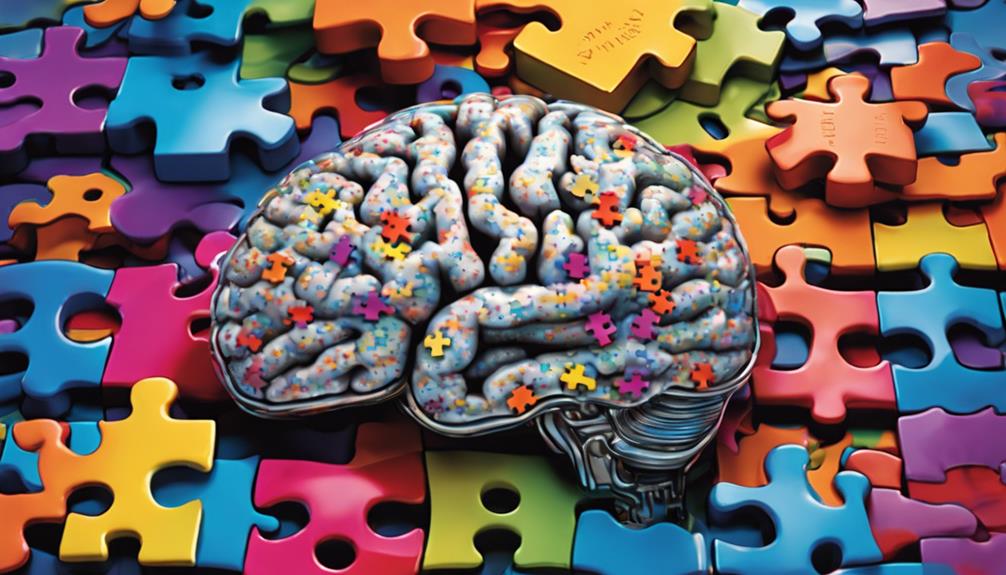Coping with life after loss requires a structured approach. Here are five essential steps to assist in grief recovery. Understand the non-linear stages of denial, anger, bargaining, depression, and finally acceptance. Acknowledge all emotions without judgment for healing. Seek support from loved ones, groups, or professionals for comfort. Embrace self-care practices like exercise, meditation, and creative outlets. Reflect on values and find new meanings for personal growth. Following these steps can foster healing and renewal in the journey through grief.
Key Takeaways
- Acknowledge and accept full range of emotions to facilitate healing.
- Seek support from friends, family, or professionals for comfort.
- Practice self-care through activities like exercise and journaling.
- Reflect on positive memories and find meaning for personal growth.
- Engage in activities resonating with inner self for joy and fulfillment.
Understanding the Grieving Process
In understanding the grieving process, we recognize that it typically involves five stages that individuals may navigate through non-linearly and at varying durations. These stages, known as the Five Stages of Grief, include denial, anger, bargaining, depression, and acceptance.
Coping with loss becomes more manageable when one comprehends these stages and the emotional journey they signify. Denial often serves as an initial shield against the overwhelming reality of loss, followed by anger as the pain surfaces. Bargaining may involve seeking ways to reverse the loss, while depression signifies a deeper sense of sadness and mourning. Finally, acceptance emerges as a gradual acknowledgment and integration of the loss into one's life story.
Healing begins as individuals move towards acceptance, allowing themselves to grieve and heal in their unique ways. Understanding the grieving process empowers individuals to navigate their emotions with self-awareness and seek support when needed to promote healing.
Embracing Your Emotions

Acknowledging and accepting the full range of emotions that accompany grief is an important step in the healing process. Grief experts emphasize the significance of allowing yourself to experience feelings such as sadness, anger, guilt, and more without judgment or suppression. By processing these emotions, you take a significant stride towards emotional healing.
Expressing your emotions not only aids in understanding your grief journey but also fosters self-compassion, personal growth, and resilience. It's vital to give yourself permission to feel and express these emotions as they come, recognizing that they're a natural part of the grieving process.
Embracing your emotions can lead to a deeper connection with yourself and help integrate your loss into your life. Remember, acceptance of your emotions is a sign of strength and courage on your path to healing.
Seeking Support and Guidance
Seeking support and guidance from various sources is essential for managing the complexities of grief and finding emotional comfort during the healing process. When dealing with the stages of grief and loss, reaching out to friends, family, or support groups can provide a sense of understanding and solace. Professional guidance from therapists or counselors equips individuals with tools and coping strategies to navigate the challenges that come with grief.
Engaging in grief recovery programs or workshops offers a supportive environment where experiences can be shared with others on a similar healing journey. Online resources, including forums and virtual therapy sessions, provide convenient options for accessing support from the comfort of home. Seeking spiritual guidance or practicing meditation and mindfulness can also contribute to a sense of peace and connection during the healing process.
Practicing Self-Care and Healing Activities

Engaging in self-care activities is essential for promoting emotional healing and well-being after experiencing loss. To begin the healing process, consider incorporating self-care practices like exercise, meditation, and journaling into your daily routine. These activities can help you process your emotions and find inner peace.
Additionally, connecting with supportive friends and family members can provide comfort and a safe space to share your feelings. Joining grief support groups or attending therapy sessions is also beneficial, as they offer a structured environment to explore your emotions further.
Exploring creative outlets such as art, music, or gardening can be a therapeutic way to express your grief and find solace. Prioritizing rest, healthy eating, and regular sleep is vital for nurturing your physical well-being during this challenging time.
Moving Forward and Finding Meaning
In moving forward and finding meaning after loss, exploring personal values and beliefs becomes a pivotal step towards creating a new sense of purpose. It's essential to engage in activities that resonate with our inner selves, bringing joy and fulfillment to rebuild our identity. Seeking support from individuals who've walked a similar path can offer validation and understanding during the healing process.
Reflecting on positive memories and lessons learned from the loss can aid in shaping a narrative of growth and resilience. Embracing new opportunities for personal growth and self-discovery is vital in progressing through the journey towards healing and recovery. By actively participating in these steps, we can gradually find meaning in our experiences, fostering personal growth and a renewed sense of purpose. This process not only helps us honor what was lost but also empowers us to redefine ourselves and our paths moving forward. Life after loss becomes an opportunity to rebuild with intention, allowing us to weave our pain into a tapestry of strength and wisdom. Through this, we find that the journey, though challenging, holds the potential for profound transformation and renewed hope.
Frequently Asked Questions
Can Grief Affect Physical Health Long Term?
Grief can indeed have lasting effects on physical health. Stress from loss can impact immunity, sleep, and cardiovascular health. It's crucial to seek support, maintain self-care routines, and consider therapy to manage these impacts.
Prioritizing mental health through therapy, exercise, and proper nutrition can help mitigate long-term physical consequences of grief. Remember, seeking help is a sign of strength and resilience in addressing the challenges of grief.
How Do I Navigate Strained Relationships During Grief?
Managing strained relationships during grief can be challenging. It's crucial to communicate openly and honestly with those involved. Establishing boundaries and expressing needs clearly can help manage expectations.
Seeking support from a therapist or counselor may provide guidance on handling these dynamics. Remember, it's important to prioritize self-care and take time to heal.
Patience and understanding from all parties involved can contribute to managing these relationships during this difficult time.
Is It Normal to Experience Guilt After a Loss?
It's crucial to experience guilt after a loss. We may question our actions or decisions, wondering if we could have done something differently.
Remember, grieving is a complex process, and these feelings are common. Acknowledge your emotions, talk to someone you trust, and consider seeking support to navigate through this guilt.
It's vital to be patient with yourself and allow yourself to heal in your own time.
What Role Does Spirituality Play in Grief Recovery?
Spirituality can be a valuable resource in grief recovery. It provides comfort, meaning, and a sense of connection beyond the physical world.
By engaging with spiritual practices, we can find solace, guidance, and a deeper understanding of our emotions. These practices may include prayer, meditation, or connecting with a higher power.
Spirituality can offer a framework for processing grief and help us navigate the complexities of loss with a sense of purpose and hope.
How Can I Support a Grieving Friend Without Overstepping Boundaries?
When supporting a grieving friend, it's crucial to show empathy and listen actively. Avoid trying to fix their emotions; instead, provide a safe space for them to express themselves.
Offer practical help like cooking a meal or running errands. Respect their boundaries and let them lead the conversation.
Check in regularly, but don't overwhelm them. Remember, each person grieves differently, so be patient and understanding throughout the process.
Conclusion
In the journey of grief recovery, remember that healing is like a garden – it requires patience, nurturing, and time to bloom. By understanding the process, embracing emotions, seeking support, practicing self-care, and moving forward, we can navigate the path towards healing.
Just as a garden flourishes with care and attention, so too can we cultivate a life filled with healing and growth after loss. Trust in the process and allow yourself to bloom.









